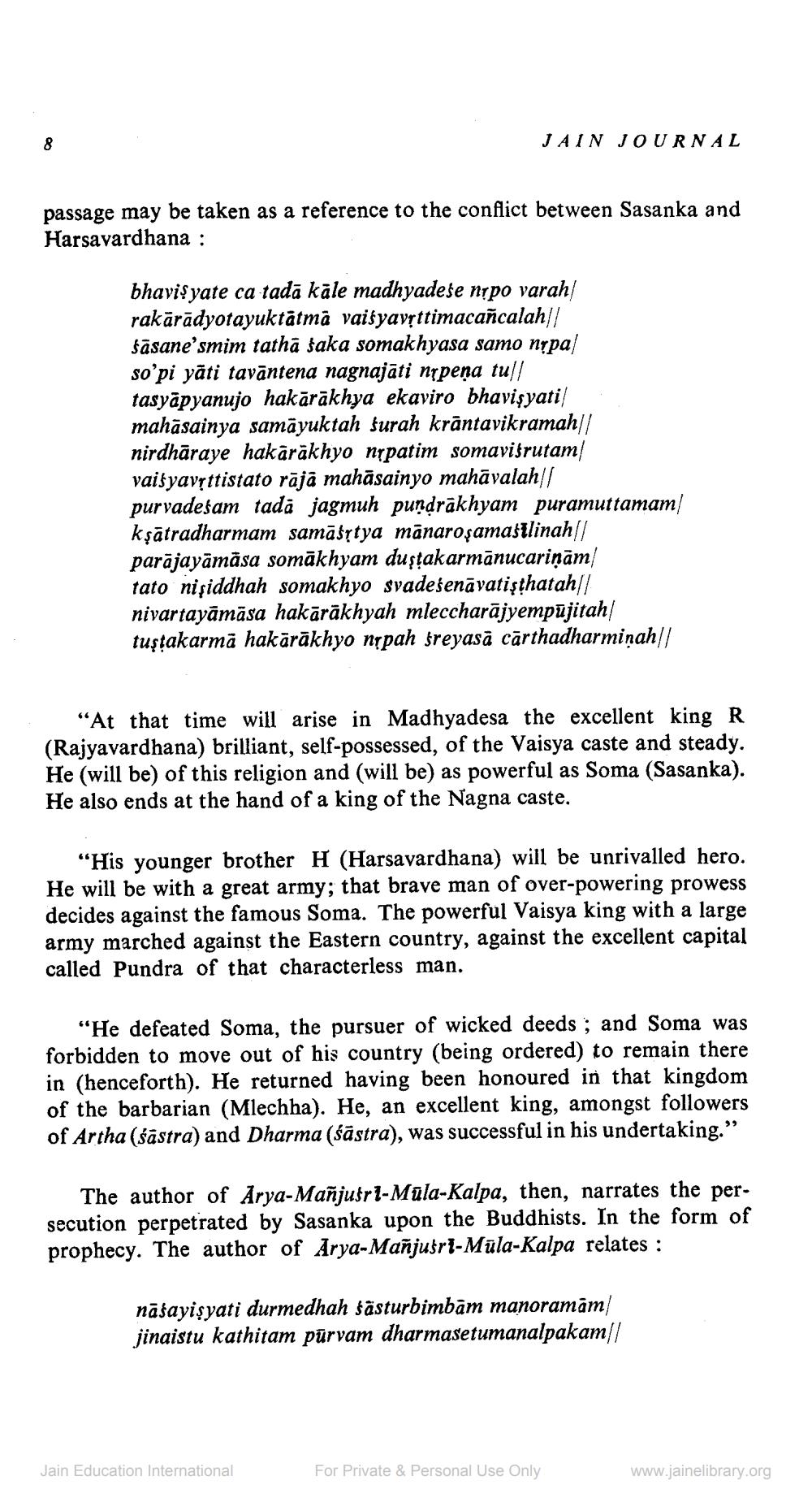________________
8
JAIN JOURNAL
passage may be taken as a reference to the conflict between Sasanka and Harsavardhana :
bhavis yate ca tadā kāle madhyadese nṛpo varah rakārādyotayuktātmā vaisyavṛttimacañcalah// sāsane'smim tathā šaka somakhyasa samo nṛpa| so'pi yati tavāntena nagnajāti nṛpena tu// tasyāpyanujo hakārākhya ekaviro bhavisyati mahāsainya samayuktah surah krāntavikramah|| nirdhāraye hakārākhyo nṛpatim somavirutam vaisyavṛttistato rājā mahāsainyo mahāvalah|| purvadesam tada jagmuh puṇḍrakhyam puramuttamam kşātradharmam samāsṛtya mānaroşamasılinah[/ parājayāmāsa somākhyam duṣṭakarmānucariņām tato nisiddhah somakhyo svadesenāvatiṣṭhatah// nivartayāmāsa hakārākhyah mleccharajyempujitah tuşṭakarma hakārākhyo nṛpah sreyasā cārthadharminah||
"At that time will arise in Madhyadesa the excellent king R (Rajyavardhana) brilliant, self-possessed, of the Vaisya caste and steady. He (will be) of this religion and (will be) as powerful as Soma (Sasanka). He also ends at the hand of a king of the Nagna caste.
"His younger brother H (Harsavardhana) will be unrivalled hero. He will be with a great army; that brave man of over-powering prowess decides against the famous Soma. The powerful Vaisya king with a large army marched against the Eastern country, against the excellent capital called Pundra of that characterless man.
"He defeated Soma, the pursuer of wicked deeds; and Soma was forbidden to move out of his country (being ordered) to remain there in (henceforth). He returned having been honoured in that kingdom of the barbarian (Mlechha). He, an excellent king, amongst followers of Artha (sastra) and Dharma (śāstra), was successful in his undertaking."
The author of Arya-Mañjusrl-Mula-Kalpa, then, narrates the persecution perpetrated by Sasanka upon the Buddhists. In the form of prophecy. The author of Arya-Mañjusri-Mula-Kalpa relates :
nāsayiṣyati durmedhah sästurbimbām manoramām jinaistu kathitam purvam dharmasetumanalpakam||
Jain Education International
For Private & Personal Use Only
www.jainelibrary.org




